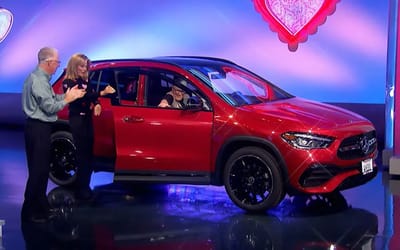Disputed EV feature will be made illegal in China by 2027
Published on Jul 15, 2025 at 2:05 AM (UTC+4)
by Henry Kelsall
Last updated on Jul 14, 2025 at 3:06 PM (UTC+4)
Edited by
Emma Matthews
A disputed EV feature will be made illegal in China by 2027, which could lead to other countries following suit and banning the one-pedal driving feature.
The country recently announced new rules regarding the brakes of electric cars, with some models featuring a one-pedal mode.
However, experts believe this is not the safest method for driving an EV, and that it should not be included on any electric vehicles.
China has therefore decided to make this feature illegal, removing the one-pedal driving mode. This now eliminates one of the most controversial features of modern electric cars.
DISCOVER OUR SUPERCAR AUCTION SITE – View live auctions on SBX Cars
Why one-pedal driving is a disputed EV feature
One-pedal braking is when the regen effect is so strong in an EV that you barely need to touch the brakes to stop.
This is a feature that many love, and it effectively means you drive the car with just one pedal.
Regenerative braking is also when the car regains some of its electrical energy as you slow down.
Experts, however, believe that one-pedal braking is potentially quite dangerous, hence the divided opinions.

Because of this, China has acted to ban it from 2027 onwards in all of its electric vehicles.
The country is introducing a new national standard for all passenger cars, labelled as GB 21670-2025.
What does the new legislation in China mean?
What this legislation means is drivers must not be able to set their EVs to a default mode that allows the car to stop just by lifting off the gas pedal.
While it doesn’t outlaw one-pedal braking outright, it signals how the country feels about the practice.
One-pedal braking can remove the delay between lifting off the throttle and pressing the brake pedal.
But studies have shown that drivers then become heavily reliant on regenerative braking.

This means that in emergencies where sharp braking is needed, they are often very slow to react.
With China making its position on the practice clear, it’s possible other countries might follow.
Drivers have over a year to adjust to not using the disputed EV feature, as the new laws don’t come into effect in China until January 1st, 2027.
It will be very interesting to see if driving standards change due to the new rules.
Click the star icon next to supercarblondie.com in Google Search to stay ahead of the curve on the latest and greatest supercars, hypercars, and ground-breaking technology.
DISCOVER SBX CARS: The global premium car auction platform powered by Supercar Blondie
Henry joined the Supercar Blondie team in February 2025, and since then has covered a wide array of topics ranging from EVs, American barn finds, and the odd Cold War jet. He’s combined his passion for cars with his keen interest in motorsport and his side hustle as a volunteer steam locomotive fireman at a leading heritage steam railway in England.




